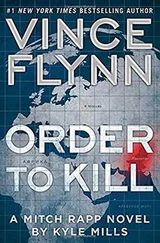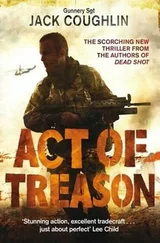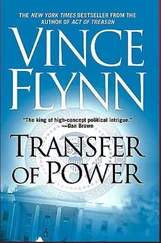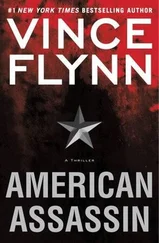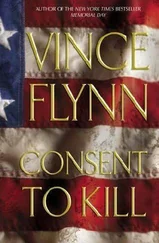Garret did not feel like getting on a plane to go anywhere other than California, but he knew Ross was right. They were too close to let this thing fall apart and Green and his associates couldn’t be trusted.
“Yes, you have. I’ll go.”
POTOMACPALISADES, WASHINGTON, DC
Kennedy finished loading the dishwasher and dried her hands on a towel hanging from the refrigerator door handle. The clock on the microwave read 10:29. Her son was in bed, and a pot of coffee was ready to go. They would want coffee, even at this late hour. Kennedy walked through the dining room to the formal living room. She looked out the window to see if they’d arrived. A man was out walking his golden retriever. Kennedy recognized the dog before the owner. It was Rookie and Mr. Soucheray, her neighbor.
Even though Kennedy loved her neighborhood, she had considered moving. Potomac Palisades was, in her biased opinion, the nicest area in Washington, DC. It wasn’t the most expensive, or the most exclusive, but that was part of what made it one of the nicest. It was old. Good-sized homes with bigger than normal city yards. Yards that people mowed themselves. Kennedy didn’t mow her own lawn, but instead of hiring a service she had one of the neighborhood boys handle the chore. In another year or two Tommy would be able to take over. Potomac Palisades was not a bedroom community. People knew each other.
Her mother lived less than a mile away in the Foxhall Village neighborhood. Kennedy had tried to get her to live with them, but the woman wanted her independence, and Kennedy respected that. The Palisades ran along the eastern edge of the Potomac river. With its rolling terrain and luscious growth it felt like a sanctuary far from the nation’s center of power. In truth it was a straight three-mile shot from the White House. Four if you wound your way down the Potomac. The only reason she considered moving was out of respect for the quiet neighborhood and the nice people who lived there. The CIA made a lot of people nervous. In Washington the institution tended to be less polarizing. Pretty much everybody knew somebody who worked for the CIA or had worked for the CIA. When you saw those people pulling up to a soccer game or the grocery store in their minivan it took a lot of the mystique out of the job.
Being the director of the CIA was a slightly different matter, though. Shortly after she took over the top job, Langley replaced all the windows in her house with bulletproof glass and installed steel doors and door frames with overlaid wood veneer. They wanted to do even more, like installing a ten-foot privacy fence in back. She put her foot down and told them no. Instead, they landscaped, putting in pressure pads and laser and microwave sensors. A panic room had been built in the basement and the home was swept twice a week for listening devices. A bomb tech and his German shepherd checked her car every morning before she left for work. Next to the panic room in the basement they’d also built a security shack that was the nerve center for the extremely expensive security system. The house was as secure as they could make it without tearing it down and starting over.
After all the security precautions were implemented, another group at the CIA took it upon themselves to do a threat assessment on Kennedy. At the top of their list was the suggestion that she move to a location with a long driveway. The current house was a scant forty feet from the street. Any terrorist with a couple thousand dollars and a rudimentary understanding of chemistry could simply drive down her street and level her house. Welcome to the post-9/11 world. She was a high-value target and her neighbors were understandably uneasy that their peaceful neighborhood might become ground zero.
Kennedy’s response was to shelve the threat assessment. She thought of the risks her father and stepmother had taken. Her dad had also worked for the CIA. He’d been the station chief in Beirut back in 1983 when a car bomb leveled the place. Her stepmother worked for the State Department. Kennedy’s parents divorced when she six. Her mother, it turned out, wasn’t cut out for the world of international espionage. Kennedy spent a significant portion of her teens and early twenties overseas. She’d lived in Cairo, Damascus, Baghdad, and Beirut before everything fell apart. Having walked the streets of Beirut with machine-gun fire in the distance and mortars going off only blocks away it seemed ludicrous to think that such violence could come to the tranquil streets of Potomac Palisades.
When President Hayes decided not to seek reelection, Kennedy put the decision to move on hold. When Alexander and Ross won the race, she banished any thought of moving. Kennedy was an exceedingly civil person. Always polite and rarely confrontational. She was a woman in a man’s world, and she knew her mere presence could be threatening to the insatiable egos of the men who were drawn to work in Washington. Thomas Stansfield, her mentor, had warned her often about the perils of working for men who needed to constantly prove that they were right. Kennedy avoided most of the frays by staying respectful, but firm. She also avoided gossip and politics. She had tried to do the same with Ross, but there had always been signs that there was an agenda lurking beneath the surface. Nothing big, just little things, but the little things often spoke volumes about people.
For example, Ross was habitually late for every meeting. Kennedy remembered Stansfield telling her once that when someone is constantly late, they fall into three categories. The first, he calledidiot savant. The type of person who is so smart in his or her field of expertise that their mind is literally elsewhere. In layman’s terms he explained that these people were smart in school and dumb on the bus. The second category was made up of perfectionists, people who were incapable of letting go of one task and moving on to another. These people were always playing catch-up, rarely rose to any real position of power, and needed to be managed properly. The third category, and the one to be most wary of, were the egomaniacs. These were the people who not only felt that their time was more important than anyone else’s, but who needed to prove it by constantly making others wait for them.
Kennedy was worried. She looked out the window and checked for headlights. Rapp and Dumond had said they’d found some interesting stuff and they were on their way over. In the past she had always tried to keep her personal feelings separate from her job, especially when dealing with those who’d been elected to office. Ross was making that difficult. It was as if she’d seen him for who he really was, for the first time, this morning. The man had yet to take his oath of office. If he’d called and questioned her about the article, she would have understood. If he’d called for an appointment, she would have thought he’d had more important things to do, but would have accommodated him nonetheless. But showing up unannounced was peculiar. It was as if he needed to see her beaten down.
A pair of bluish white xenon headlights appeared at the far end of the block. A few seconds later a silver Audi came to an abrupt halt at the curb. Kennedy watched as Dumond and Rapp got out of the car and started up the walk. The younger man, Dumond, moved with a carefree gait, his attention focused on some small device he was carrying in his left hand. Rapp moved with an athletic grace. There was nothing herky-jerky or rushed about his movements. His head swiveled from left to right and then back, like a radar searching for potential threats. She remembered seeing that awareness when she’d recruited him all those years ago at Syracuse. Kennedy strode through the living room to the foyer and punched a code into the security panel on the wall. Somewhere behind the wall she heard the faint whirl of an electronic motor as it retracted three steel pins from the door.
Читать дальше

